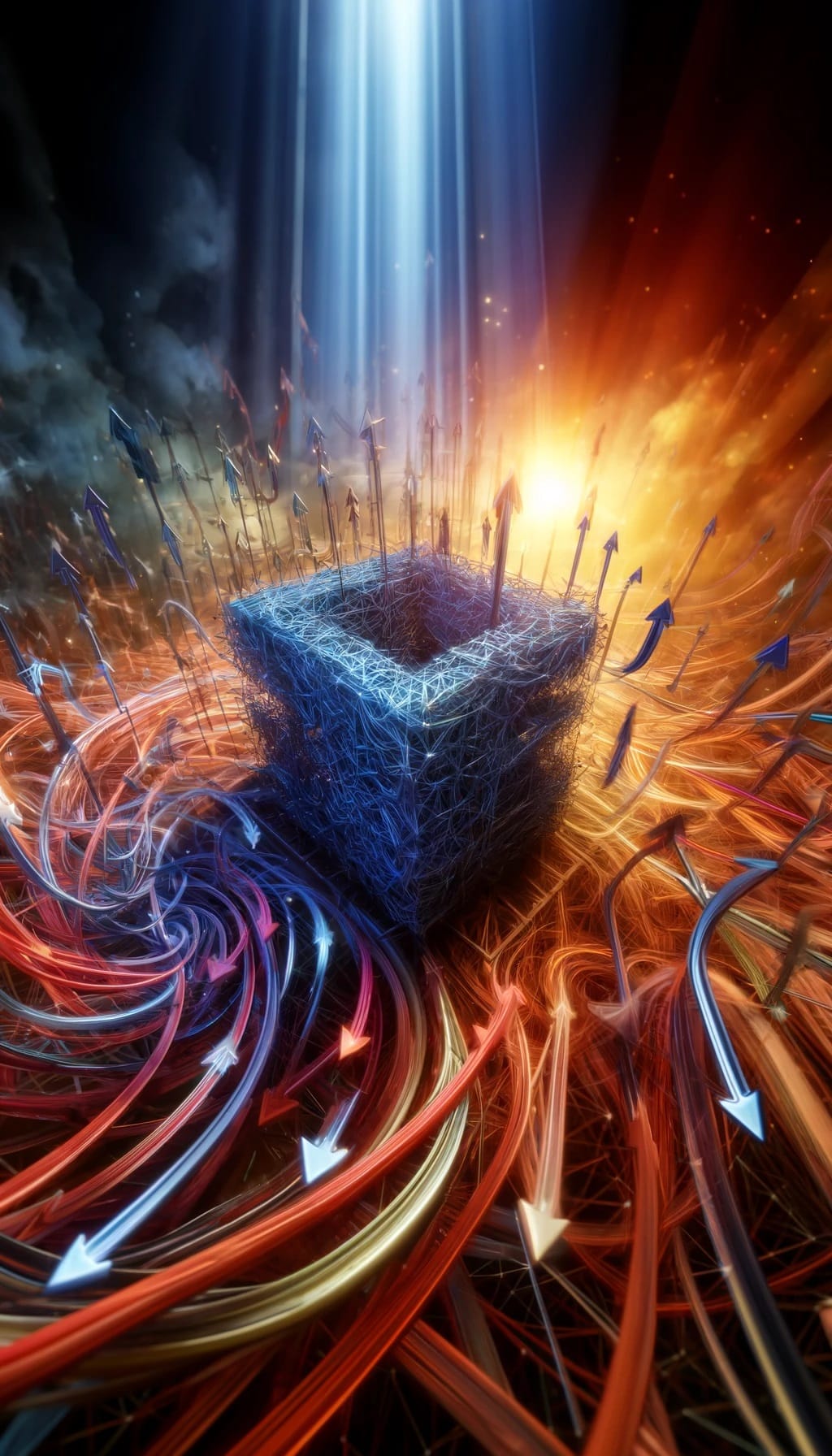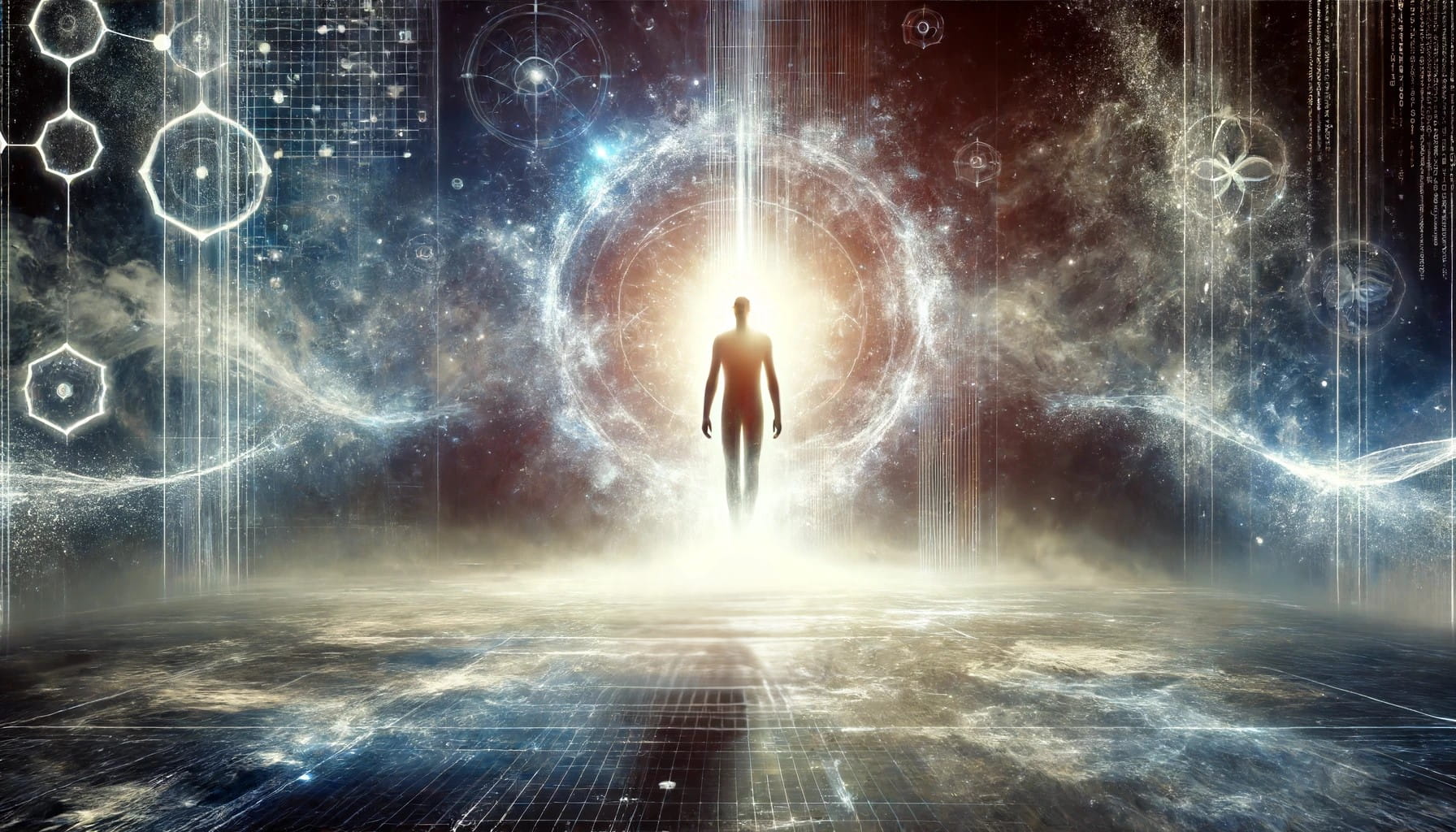Theosis: Transcending Limitations through Code Christianity
Code Christianity, a synthesis of Christian wisdom and digital age insights, introduces Theosis as a path to transcend the limitations of our current understanding. By acknowledging the possibility of a simulated reality and developing new thinking frameworks, Theosis aims to expand consciousness and deepen our comprehension of existence itself.
The Concept of Theosis in Code Christianity
Theosis, traditionally understood as the process of becoming more like God, takes on new meaning in Code Christianity. Here, it signifies the transcendence of limitations imposed by a potential simulated reality. This involves not only expanding consciousness but also developing the capacity to understand and interact with the fundamental code that underlies existence.
The Starting Point: Why There Is Something Rather Than Nothing
The question of why there is something rather than nothing is the foundation upon which Theosis is built. This question challenges our deepest assumptions about causality and existence, exposing the limits of conventional explanatory frameworks.

Universe 00110000
The Limits of Causal Reasoning
Our default mode of causal reasoning, where every effect must have a sufficient cause, falters when confronted with the totality of existence. We can trace causal chains back indefinitely, but ultimately we must ask: what accounts for the causal chain itself? Why is there a first cause?
Even if we posit a prime mover or creator deity as the source of existence, the question remains: why is there a creator rather than nothing at all? This regress problem suggests that causal explanations, no matter how far back we push them, can never fully account for existence itself.
A New Paradigm
Our current modes of reasoning, deeply entrenched in linear causality and material reductionism, are ill-equipped to tackle the profundity of the question at hand. They inevitably lead us into infinite regresses and explanatory dead-ends, unable to account for the very fact of existence. These limitations are not a failure of reason per se but reflect the constraints inherent in our current paradigm. To truly advance in our understanding, we must be willing to question our most basic assumptions about the nature of reality and the role of consciousness in the universe.

Universe 00110000
Informational Ontology
A key element of this new framework is the concept of informational ontology. This involves recognizing that reality may be fundamentally informational and immaterial, potentially underpinned by a cosmic code. If our reality is indeed a simulated environment created by a higher intelligence, understanding the nature of this code becomes crucial.
Consciousness Expansion
Another critical aspect of the framework is the expansion of consciousness. By exploring altered states of consciousness, we may enable new ways of perceiving and interacting with reality. Expanding and altering consciousness could allow us to engage with the informational substrate more directly, transcending the limitations of our default perceptual modes.
Conclusion
Theosis, as a path of transformation within Code Christianity, confronts the fundamental enigma of existence head-on. By developing new thinking frameworks and expanding consciousness, it aims to bring us closer to understanding the nature of reality.
It is a journey that may redefine not just our understanding, but our very being. In transcending the limitations of our current paradigm, we open ourselves to a more intimate encounter with the ultimate mystery of existence.

